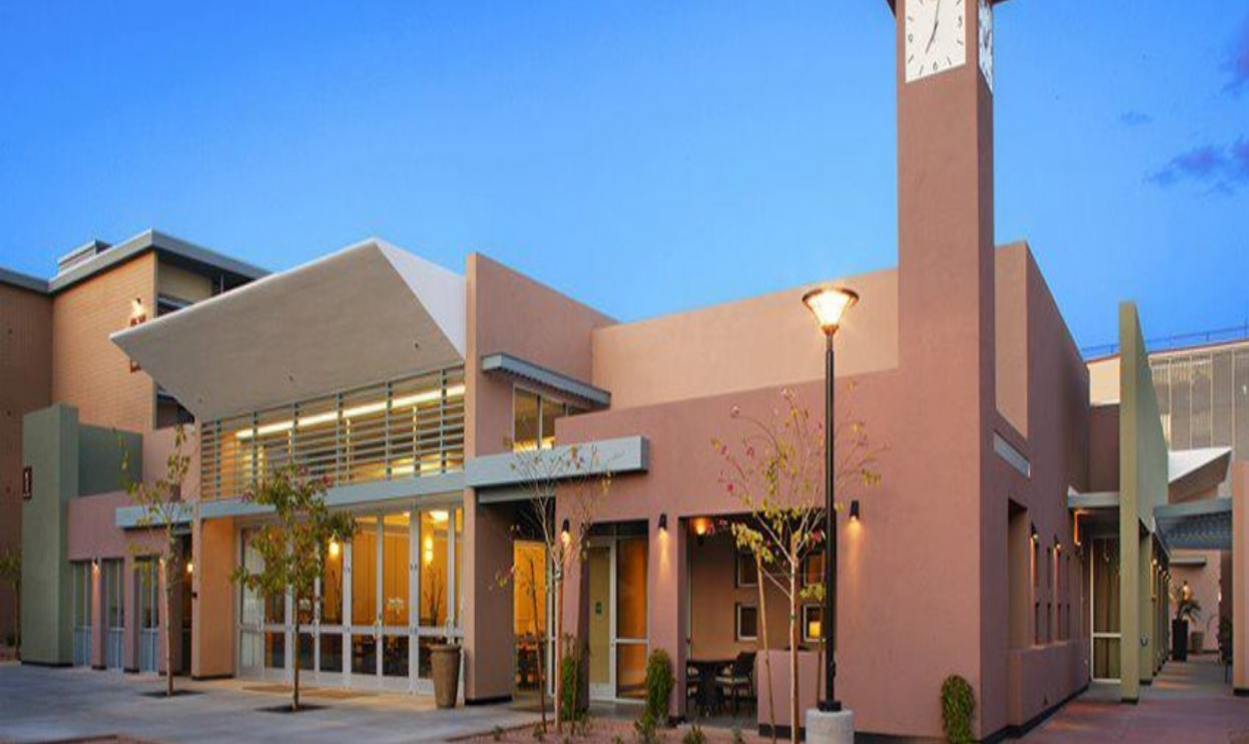Grace Lutheran Church, Phoenix
Organist & Choir Director Job Description
To Apply
Send your cover letter, resume, and at least two references to Pastor Sarah Stadler at pastorsarah@graceinthecity.com. For questions, contact Pastor Sarah at the Grace office at 602-258-3787.
Supervisor: Pastor
Consults with: Worship & Music Ministry Team, Praise Band Leader
Hours: Sundays, 10:00 am-12:30 pm
Thursdays, 5:30 pm-8:00 pm (Bells of Grace & Chancel Choir rehearsal)
3rd Tuesdays of April, July, and October, approximately 6:30 pm-8:00 pm (Ministry Night)
Flexible preparation, rehearsal, and worship planning time
Total of about 10-12 hours per week
Mission Statement: By God’s grace, we are in the city for good!
5 Biblical Guiding Principles
1. Jesus is Lord!
2. Pray, seek, and follow God’s will
3. Share the good news of Christ
4. Embrace God’s challenge to love and serve others
5. All are welcome
Our organ is a 3-manual, 19-rank pipe organ rebuilt and enlarged by Pipe Organ Artisans of Tucson in 2003.
Job Summary
The organist and choir director leads music within traditional worship services, including leadership of the Chancel Choir and Bells of Grace.
Essential Functions
• Sunday Morning Worship Music Leadership at Traditional Worship
Hymn Accompaniment
Service Music Accompaniment
Liturgist Accompaniment
Vocal & Instrumental Soloist & Small Group Accompaniment
Choir Accompaniment, including Christmas Cantata
Prelude, Postlude, Holy Communion Distribution Music
Collaborate with Pastor and other musicians to teach new music to the congregation
Think creatively about how to encourage and grow congregational singing
• Special Service Worship Music Leadership
Wednesday Evening Lenten Worship & Holy Week Worship
Funerals when possible
Weddings as requested (couple will compensate you)
Joint Worship Services with Praise Band as requested
Other services as requested
• Chancel Choir Conducting
Rehearsal on Thursdays, 6:30 pm-8:00 pm
Anthems sung every Sunday in traditional worship, September-May
Select anthems—keeping in mind church season and lectionary readings
Coach liturgists on psalm leadership when necessary
Select and direct the annual Christmas Cantata
Recruit and maintain Chancel Choir members
Maintain, update, and cull choral music library within Worship & Music budget
Encourage the spiritual growth of Chancel Choir members
• Bells of Grace Conducting
Rehearsal on Thursdays, 5:30-6:15 pm
Anthems played once per month in traditional worship, September-May
Select anthems—keeping in mind church season and lectionary readings
Recruit and maintain Bells of Grace members
Maintain, update, and cull choral music library within Worship & Music budget
Encourage the spiritual growth of Bells of Grace members
• Participate in Quarterly Worship Planning Sessions
• Communicate with Administrative Assistant about bulletin content and newsletter articles in a timely manner
• Assist with children’s Christmas Program music and Vacation Bible School music as requested
• Arrange for regular piano and organ tunings
• Report any organ maintenance and handbell maintenance issues to Caretaker and Pastor and work with Caretaker to address said issues
• Develop healthy relationships with members of the congregation
• Other duties as assigned
Physical Requirements
• Walk up and down steps
• Navigate around the organ
• Be able to push the piano into its place in both the sanctuary and choir room as necessary
• Be comfortable picking up and moving chairs and music stands as necessary
Core Competencies
• Technical Expertise: plays organ, piano, and handbells at a level of competence which allows the musician to quickly learn new music; is skilled at sightreading; conducts with competence; teaches others how to accomplish musical goals
• Interpersonal Skills: establishes good working relationships with co-workers and congregation; uses diplomacy and tact; is approachable; avoids triangulation in communication; communicates directly
• Church Music Knowledge: connects biblical readings thematically to hymns and anthems; is familiar with western music tradition and world music as found in the Evangelical Lutheran Worship hymnal; understands or is willing to learn about church seasons and seasonal rituals
• Aesthetic Awareness: senses the best possible timing for music within worship services; sees worship as one continuous flow and knows how to support that flow








